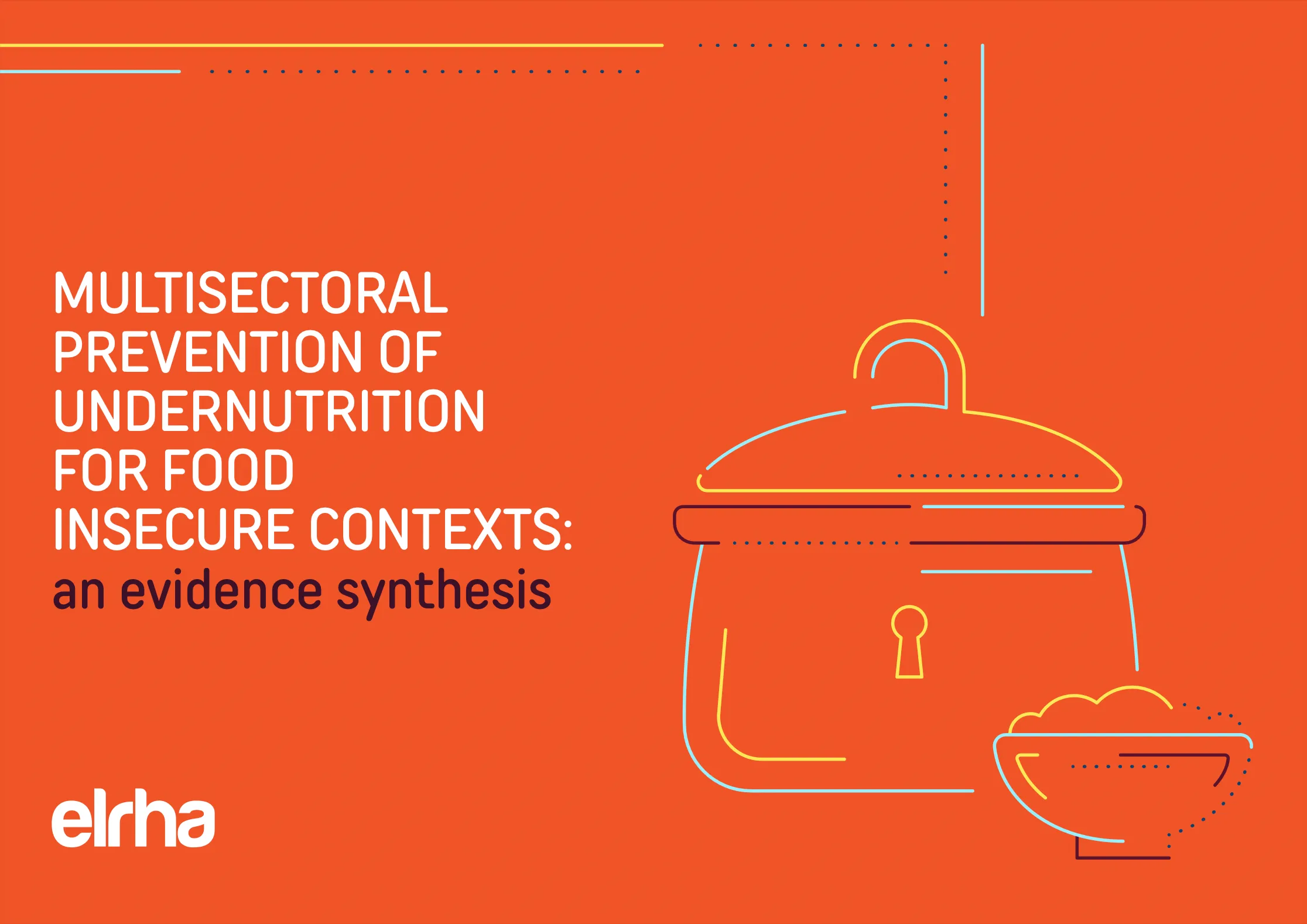Multisectoral Prevention of Undernutrition for Food Insecure Contexts: An evidence synthesis

There are currently 258 million people across 58 countries and territories facing acute food insecurity, with women and children particularly vulnerable to undernutrition in these contexts. While we have long known what is needed to keep women and children healthy, there remain many unknowns about how to do this in humanitarian contexts with food insecurity. This evidence synthesis, funded by our Research for Health in Humanitarian Crises (R2HC) programme, aims to synthesise the literature on prevention of undernutrition (wasting, stunting and micronutrient deficiency) for children less than five years, adolescent girls and pregnant and breastfeeding women in food insecure/humanitarian settings. Findings of the review are organised by intervention type, starting with nutrition sensitive interventions relating to community and household assistance: food, cash and vouchers, social protection, agriculture/livestock production, and WASH and health services. Targeted nutrition support for women and children through nutrition-specific interventions are then addressed, including the evidence linked to the value of addressing women’s empowerment and maternal mental health. The final section examines the evidence available for multisectoral packages of support. The value of social behaviour change communication is addressed under each of the intervention areas because it is rarely delivered as a standalone intervention. When looking at the state of evidence on the prevention of undernutrition with multi-sectoral interventions (provided as single interventions or in packages of support), this review found a growing body of evidence in nearly all of the intervention areas investigated, and high-quality evidence in some areas. However, in many areas, evidence is drawn from studies implemented outside acute humanitarian contexts. This evidence synthesis is guiding the development of “prevention packages” that we intend to test in Phase 2 of our programme of research on food insecurity and nutrition in humanitarian settings. It can also be a resource for humanitarian actors working across multiple sectors to embed nutrition-sensitive programming in their work. Actors can use this synthesis to identify evidence-based interventions that they may want to include in their programming, to bolster impact on nutritional outcomes.
Our work in food insecurity
Find out more about Elrha's work on food insecurity and undernutrition in humanitarian settings, including our funded research and innovation projects, as well as our new programme of research.
[.cta_link]Explore the focus area[.cta_link]